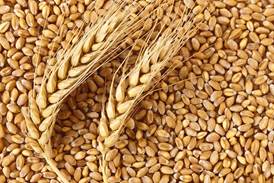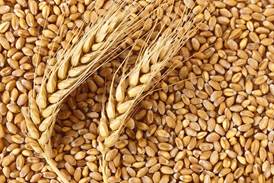Description

Disclaimer: Copyright infringement not intended.
Context
Details
- The beneficiary families which used to pay ₹1 for coarse cereals, ₹2 for wheat and ₹3 for rice per kg will now get 35kg of foodgrains free for the next one year and others will get 5kg for free in a month till December 2023.
- The Centre has estimated an additional amount of ₹2 lakh crore for the scheme.
National Food Security Act, 2013
About
- Government notified the National Food Security Act, 2013 in 2013. The enactment of the National Food Security Act, (NFSA) marks a paradigm shift in the approach to food security from welfare to rights based approach.
Salient features of the National Food Security Act, 2013
Objective
- The objective of the Act is to provide for food and nutritional security in human life cycle approach, by ensuring access to adequate quantity of quality food at affordable prices to people to live a life with dignity.
Coverage and entitlement under Targeted Public Distribution System (TPDS)
- The Act provides for coverage of upto 75% of the rural population and upto 50% of the urban populationfor receiving subsidized foodgrains under Targeted Public Distribution System (TPDS), thus covering about two-thirds of the population.
Entitlement
- The eligible persons will be entitled to receive 5 Kgs of foodgrains per person per monthat subsidised prices of Rs. 3/2/1 per Kg for rice/wheat/coarse grains.
- The existing Antyodaya Anna Yojana (AAY) households, which constitute the poorest of the poor, will continue to receive 35 Kgs of foodgrains per household per month.
State-wise coverage
- Corresponding to the all India coverage of 75% and 50% in the rural and urban areas, State-wise coverage is determined by the Central Government.
- Planning Commission has determined the State-wise coverage by using the NSS Household Consumption Survey data for 2011-12and also provided the State-wise "inclusion ratios”.
Identification of Households
- Within the coverage under TPDS determined for each State, the work of identification of eligible households is to be done by States/UTs.
Nutritional Support to women and children
- The Act also has a special focus on the nutritional support to women and children.
- Pregnant women and lactating mothers and children in the age group of 6 months to 14 years are entitled to mealsas per prescribed nutritional norms under Integrated Child Development Services (ICDS) and Mid-Day Meal (MDM) schemes.
- Higher nutritional norms have been prescribed for malnourished children upto 6 years of age.
- Children upto 14 years of age are entitled to nutritious meals as per the prescribed nutritional standards. In case of non-supply of entitled food-grains or meals, the beneficiaries will receive food security allowance.
.jpg)
Maternity Benefit
- Besides meal to pregnant women and lactating mothers during pregnancy and six months after the child birth, such women are entitled to receive maternity benefit of not less than Rs. 6,000.
Women Empowerment
- Eldest woman of the household of age 18 years or above to be the head of the household for the purpose of issuing of ration cards.
Grievance Redressal Mechanism
- Grievance redressal mechanism at the District and State levels. States will have the flexibility to use the existing machinery or set up separate mechanism.
Transparency and Accountability
- Provisions have been made for disclosure of records relating to PDS, social audits and setting up of Vigilance Committees in order to ensure transparency and accountability.
Food Security Allowance
- Provision for food security allowance to entitled beneficiaries in case of non-supply of entitled foodgrains or meals.
Penalty
- Provision for penalty on public servant or authority, to be imposed by the State Food Commission, in case of failure to comply with the relief recommended by the District Grievance Redressal Officer.
.jpg)
Cost of intra-State transportation & handling of foodgrains and FPS Dealers' margin
- Central Government provides assistance to States in meeting the expenditure incurred by them on transportation of foodgrains within the State, its handling and FPS dealers’ margin as per norms to be devised for this purpose.
- This is done so that costs do not get passed on to the beneficiary in the way of higher prices. These norms were first fixed in 2015.
Recent Revision of NFSA Norms
- Norms of Central Assistance have been revised with the approval of Cabinet Committee on Economic Affairs.
- For release of central assistance, States/UTs have been categorized under two categories viz General Category States and Special Category States.
- States from North Eastern region, hilly and islands come under Special Category States whereas rest of the States/UTs comes under General Category States.
- Special attention w.r.t. enhancement of rates has been given to the north eastern, hilly and island regions owing to difficult conditions as compared to General Category States and Union Territories in the process of delivery of foodgrains.

- The enhanced rate of Central Assistance will improve the viability of more than 5 Lakh Fair Price Shops across the country.
Read more about Food Security: https://www.iasgyan.in/daily-current-affairs/food-security-49
https://www.thehindu.com/news/national/81-crore-people-to-get-free-foodgrains-for-one-year/article66299556.ece














